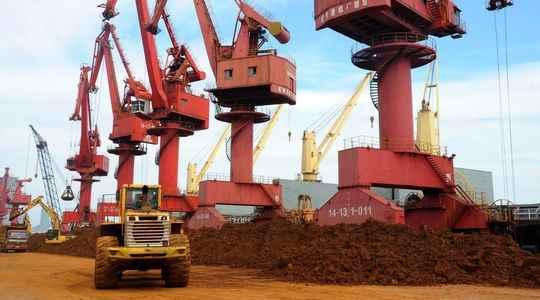What is the connection between an offshore wind turbine, a hard drive and a military dictatorship which, in Burma, has been slaughtering and imprisoning its citizens since taking power in February 2021? Answer, rare earths, these strategic metals of which the Naypyidaw junta has become one of the world’s leading producers. A little-known reality that could embarrass Western industrialists, some of whom obtain their supplies – sometimes without knowing it – from a regime ostracized by the international community.
Back to the 1980s. At that time, developed countries were producing these strategic metals themselves, which are used in the manufacture of high-tech products (batteries, hard drives, wind turbines). Problem: the extraction of these rare earths, weakly concentrated and mixed with other minerals, requires costly chemical operations that are harmful to the environment. The major Western manufacturers then turn to foreign suppliers with cheap labor and little concern for ecological damage. In a short time, China imposed itself on this strategic market. In 2021, it provides more than 60% of world production – including 80% of American needs.
What is less known is that Beijing gets more than half of its heavy rare earth supplies – such as dysprosium, gadolinium and terbium – from Burma. For the same reasons as Westerners, Beijing has indeed “closed or suspended most of its extraction sites to replace them with imports from Burma”, explains, in the Burmese magazine Myanmar borderDavid Merriman, rare earth expert at Roskill Information Services.
“Illegal miners are more active than ever”
In 2019, Burma thus became the world’s third largest producer of rare earths. Most of the deposits are in Kachin State, a mountainous territory in the north, bordering China. A hundred mines have been opened there with disastrous consequences for the environment and the health of the workers. Crushed, the ore is sent to China, where it is refined before being exported or incorporated into finished products. According to several local NGOs, these mines, which are illegal since there are no operating permits, are managed by Chinese companies and personnel.
If the Covid crisis disrupted this activity because of border closures, the coup d’etat of 2021, on the other hand, revived it well. “Illegal miners are more active than ever and the number of people from other regions has increased considerably,” said a local resident, interviewed by Radio Free Asia.
Last year, the activity reportedly brought in $610 million to Burma, according to the Chatham House Institute. But according to Chinese customs, it is rather 1.1 billion dollars that arrived in the coffers of the State.
Financing of the junta
In a recent newsletter, the consulting firm Adamas Intelligence explains to its clients “that there is a high probability [s’ils importent des aimants fabriqués en Chine] that they contain rare earth elements from Burma”. Therefore, he continues, “your company indirectly and unintentionally supports the military junta and participates in the collapse of environmental protection measures”. for example, the dysprosium found in the Chinese turbines that equip the new Beleolico wind farm, built off Taranto, in southern Italy?
The question also arises for the batteries of hybrid and electric vehicles. The Myanmar Now news agency asked Western manufacturers if they incorporated Burmese rare earths into their production. “Tesla, BMW, Volkswagen and the Volvo group have put forward processes for verifying the origin of their raw materials […]but none of them specified whether they tried to find out if they were using Burmese dysprosium.” But perhaps they will soon be forced to do so. Because pressure from NGOs and public opinion, which contributed to the withdrawal of Total and Chevron of Burma, could encourage large groups to monitor their suppliers of rare earths a little more closely, on pain of being accused of indirectly financing the abuses of a bloodthirsty regime.
